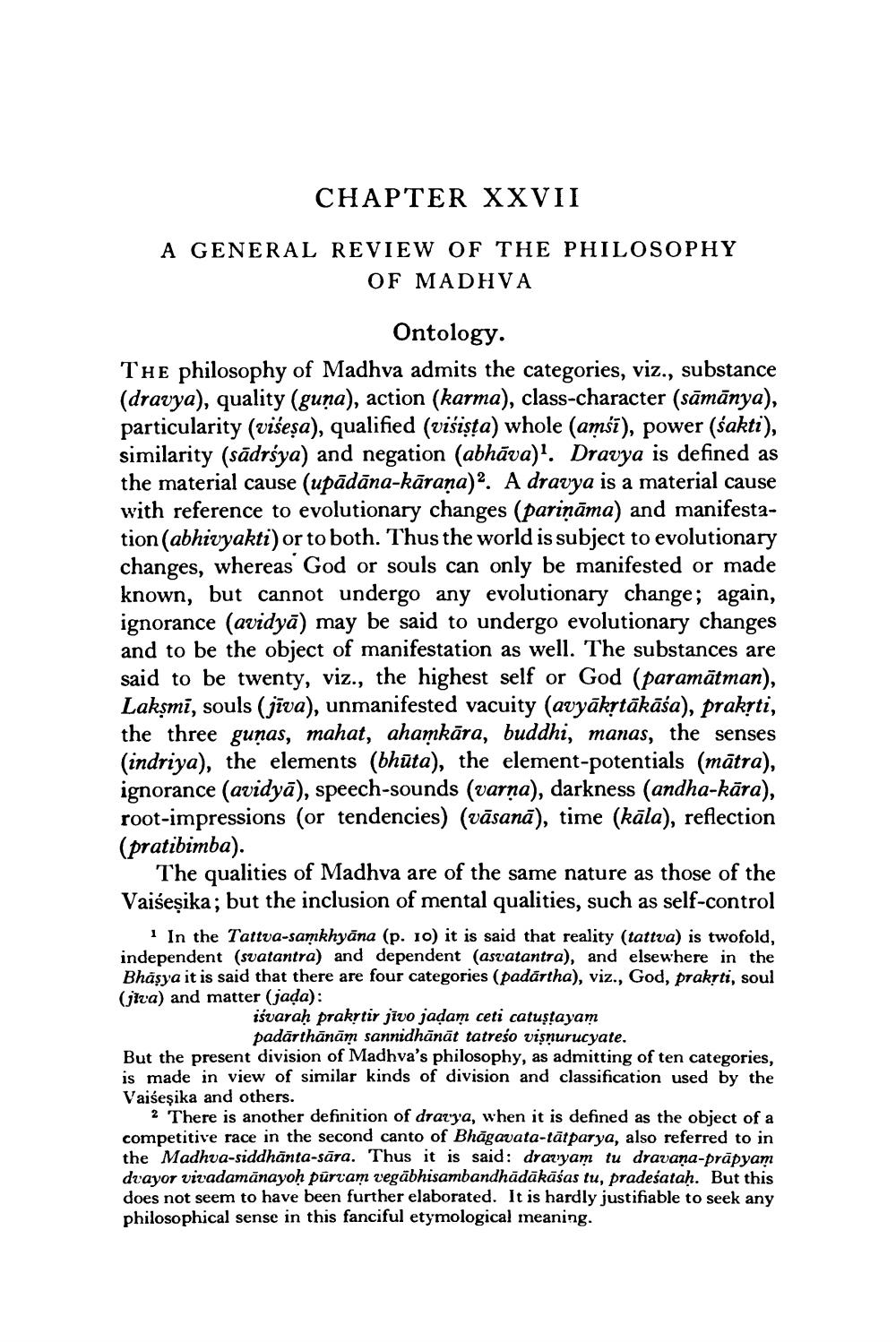________________
CHAPTER XXVII
A GENERAL REVIEW OF THE PHILOSOPHY
OF MADHVA
Ontology. The philosophy of Madhva admits the categories, viz., substance (dravya), quality (guna), action (karma), class-character (sāmānya), particularity (višeşa), qualified (višista) whole (amść), power (sakti), similarity (sādrśya) and negation (abhāva)”. Dravya is defined as the material cause (upādāna-kārana). A dravya is a material cause with reference to evolutionary changes (pariņāma) and manifestation (abhivyakti) or to both. Thus the world is subject to evolutionary changes, whereas God or souls can only be manifested or made known, but cannot undergo any evolutionary change; again, ignorance (avidyā) may be said to undergo evolutionary changes and to be the object of manifestation as well. The substances are said to be twenty, viz., the highest self or God (paramātman), Lakşmi, souls (jīva), unmanifested vacuity (avyākytākāśa), prakşti, the three gunas, mahat, ahamkāra, buddhi, manas, the senses (indriya), the elements (bhūta), the element-potentials (mātra), ignorance (avidyā), speech-sounds (varna), darkness (andha-kāra), root-impressions (or tendencies) (vāsanā), time (kāla), reflection (pratibimba).
The qualities of Madhva are of the same nature as those of the Vaiseșika; but the inclusion of mental qualities, such as self-control
1 In the Tattva-samkhyāna (p. 10) it is said that reality (tattva) is twofold, independent (svatantra) and dependent (asvatantra), and elsewhere in the Bhasya it is said that there are four categories (padārtha), viz., God, praksti, soul (jira) and matter (jada):
iśvaraḥ prakrtir jīvo jadam ceti catuştayam
padārthānām sannidhānāt tatrešo vişnurucyate. But the present division of Madhva's philosophy, as admitting of ten categories, is made in view of similar kinds of division and classification used by the Vaišeşika and others.
2 There is another definition of drazy'a, when it is defined as the object of a competitive race in the second canto of Bhāgavata-tātparya, also referred to in the Madhva-siddhānta-sāra. Thus it is said: drażyam tu dravana-prāpyam dvayor vitadamānayoh pūrvam vegabhisambandhādākāśas tu, pradeśatah. But this does not seem to have been further elaborated. It is hardly justifiable to seek any philosophical sense in this fanciful etymological meaning.




